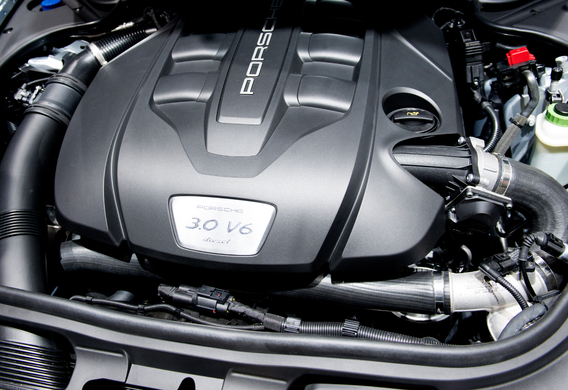
The main and main advantage of the diesel engine is economy. To understand why the diesel engine is consuming less fuel, it is enough to know that its efficiency is higher than the petrol tank. The reason is especially the construction and operation of the engine.
The gasoline engine, despite all the latest developments that improve its characteristics (e.g. direct injection system), is still inferior to that of diesel: about 30% of the fuel energy is converted into useful work. The rate for diesel is 40% on average, and for turbocharged and intermediate cooling-over 50%.
The first working engine, in which fuel ignates compresses, developed in the late nineteenth century German engineer Rudolf Diesel
That is why the cost of a kilometer and more "elastic" for the change of operation regimes have already conquer Europe, where the cost of a liter of fuel is significantly higher than in Russia. The only obstacle is a constructive impossibility to reduce the weight and reduce the size of the engine-while producing diesel, the accuracy of the fitting of the parts should be in order above, and this is not achievable with too miniature details. So far, relatively massive and heavy diesel engines are still mainly deployed on SUVs and large passenger cars.
History of diesel engine
The first working engine, with fuel inflammable, developed in the late nineteenth century German engineer Rudolf Diesel. Kerosene was used as fuel for experienced samples of diesel oil in the course of the development of the diesel oil industry. Various types of fuel liquids from rapesoid oil to crude oil were used. As a result, we have come to a simpler production, that is, cheaper than gasoline, fuel oil and diesel fuel. The low cost price is due to the possibility that these fuel classes can be produced without the use of complex processes, through a direct oil refining process.
The main use of diesel, which was very large at first, was received on ships and in fixed mechanisms. Imperfect fuel injection systems did not allow them to be used in cars that require highly sophisticated powertrains.
Only in the 1920s were the first models of freight and public transport with diesel engines. Fifteen years later, the engines of this type began to be used in the car industry, but it is still a long time of diesel-powerful, not suffering from detonation at any length of cylinder, but heavy and noisy, was the main engine of "traction trucks"-trucks and agricultural machinery, railway transport, ships.
The main difference between the diesel engine and the gasoline engine is in principle of the ignition of the mixture
In the 1970s alone, the rise in oil prices, combined with the development of technology, stimulated the development of small diesels, which soon drew up competition for petrol motors.
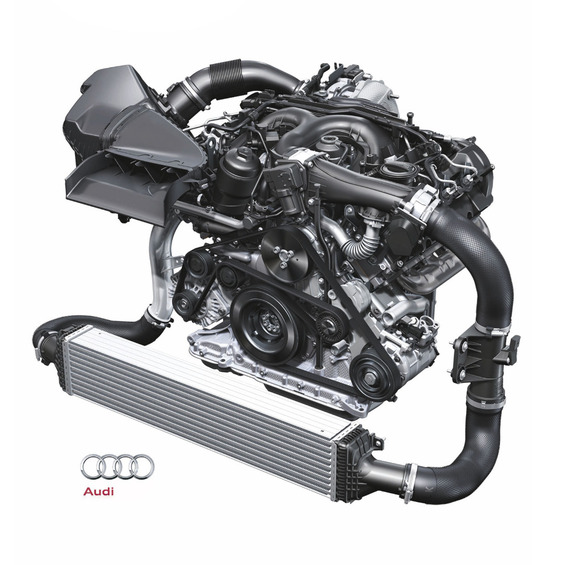
Diesel engine machine and operating principle
The diesel engine does not differ significantly from the petrol tank. The same system of cylinder piston is a cap that transforms the extension of the burning fuel-air mixture to the torque.
The main difference of the diesel oil is in the principle of ignition of the mixture. If the fuel is mixed with the air prior to the introduction of the cylinders and is burned by an electric spark, the diesel and the air shall enter the cylinders separately. The compression phase is air-only, with compaction heating to 700 to 900 degrees. Fuel is charged at the point of maximum compression in the cylinder at great pressure. Due to the high temperature, spontaneous combustion occurs, followed by cycles identical for all internal combustion engines-extensions and exhaust gases.
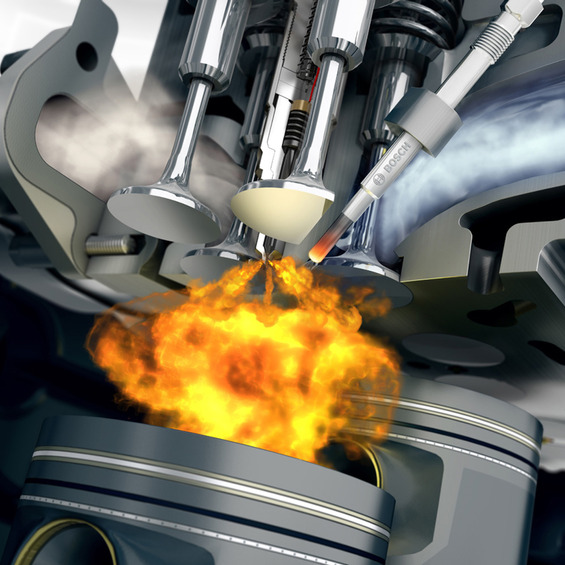
Diesel engine plus or minus
The main advantages of diesel, in addition to the already mentioned high torque and economy, can be attributed to the simplicity of the construction. Diesel doesn't need ignition and throttle. As a consequence, the engine is simpler, which means that it is more unlasable than gasoline.
On the other hand, the load of the cylinders shall be thicker because the load of the cylinders is thicker and the parts under load shall be thicker. Hence the weight and dimensions. At the end of the eighties the problem began to be solved by the use of aluminum, but the dieseles with aluminium heads were not too reliable-for overheating the aluminium details were imminent. Engines with an aluminium head block require even more precision when assembling and tightening the bolts that secure the head to the block.
The problem of diesels until recently was the level of noise at work. The point is that the explosive nature of the ignition of a mixture that is called detonation in gasoline engines is a normal story for diesel. However, in recent years the majority of automakers have successfully managed this shortcoming, raising the level of noise insulation of the car.
It is very demanding for the purity of the fuel, which not only burns in the engine's chamber, but also lubricates the pump
There is another constructive "weak spot" of the diesel engine. A high pressure fuel pump shall be used to supply the fuel to the combustion chamber. This is a complex mechanism, so the diesel is very demanding for the purity of the fuel, which not only burns in the engine's chamber, but also lubricates the pump. Abrasive particles and water can quickly disable the precise pump mechanism.
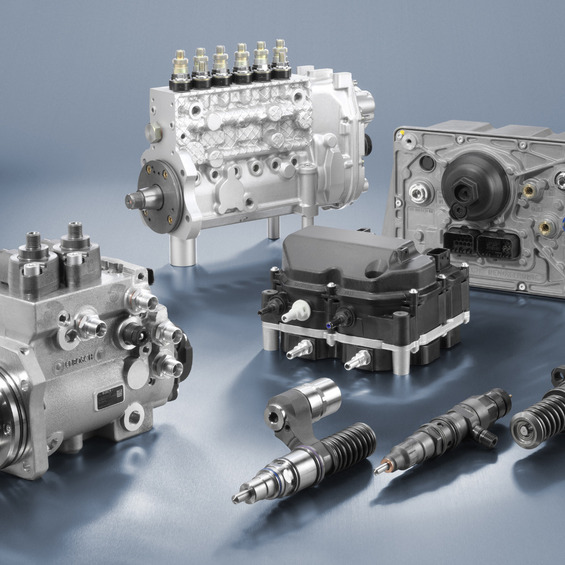
The increased requirements are for diesel and motor oil, which blurring the well-driven parts of the screech-shavee mechanism. The oil must be clean, and the combustion of diesel oil is given a lot of soot, and its particles, penetrating the oil, quickly make it unsuitable. The smallest extraneous particles work as abrauing, sharply increasing the wear, so the oil in diesel engines should be changed almost twice as often.
One of the factors inhibling the rising popularity of diesel vehicles remains one of the properties of diesel fuel. The point is that when the temperature is reduced to zero, it is noticeably thickening. Therefore, in cold-season refills, the fuel is changed to winter, which differs from the summer only by adding additives to prevent thickening. And yet, diesel cars are often concerned about the owners of cold start problems-the inertia of the heated paraffin fuel is directly proportional to the lowering of the air temperature. In especially cold regions, this deficiency is being addressed today by preheating of both the engine and various parts of the fuel system, depending on the configuration. The installation of heating, factory or non-manufacturer, naturally makes the car more expensive.
In fairness, it is worth saying that the viscosity and the absurdity of the diesel fuel are both positive features of the diesel. The engines of this family are less fire-prone.
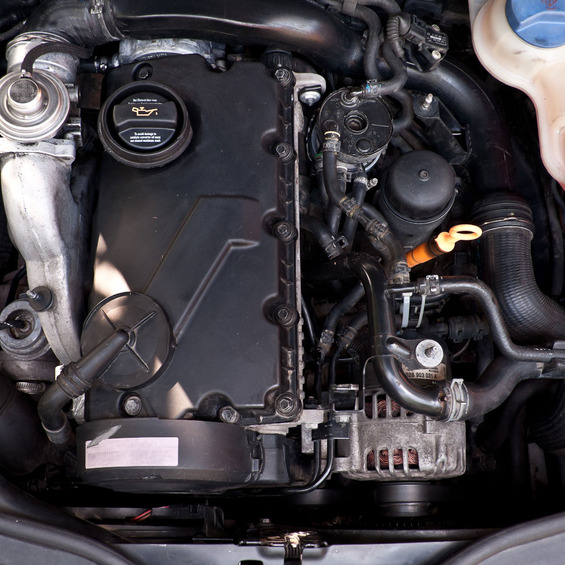
Diesel engine operation
In theory, more fat and designed to calculate the heavy load of diesel engine for diesel engine. It has specific features-the maximum torque is achieved at relatively low speeds. The diesel is characterized by a stable but smooth dynamic, so cars with this type of engine are more likely for quiet drivers (if, of course, the diesel oil is small). At the same time, the pedals and the PPC handle are manipulated less frequently (start from second gear), but once a "Rvanu" with a traffic light, it is possible to "write off" the ordinary stock of the resource.







